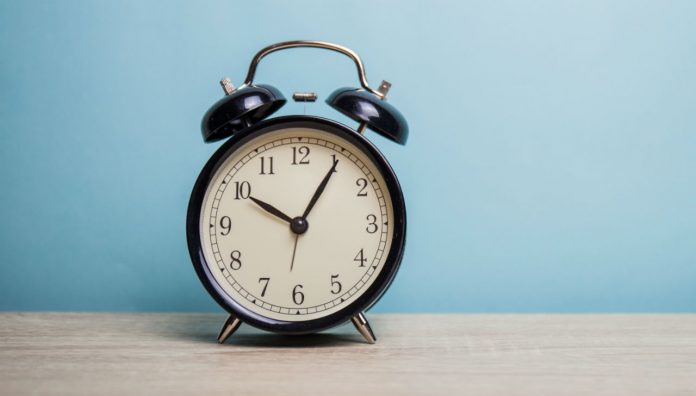A range of devices and apps are tailored to monitor and promote restful sleep. Here’s the pick of the field.
Just over a third (39%) of adult patients experience some form of inadequate sleep. In the short term, this can lead to memory and performance deficits, mood and mental health fluctuations, weight gain, and increasing stress levels. If left untreated it can significantly contribute to the prevalence of cardiovascular disease, type 2 diabetes, obesity, cancer and Alzheimer’s disease. So it comes as no surprise that nearly two-thirds (63%) are actively seeking to take steps to improve their sleep now.
In our daily practice, we will find ourselves assisting our patients with traditional (e.g. benzodiazepines) and complementary (e.g. valerian) medicines which may be coupled with psychological and behavioural treatments (e.g. relaxation therapies, cognitive therapy, and stimulus control). Patients can leave a discussion with a detailed list of their next steps, but unless they’ve employed a sleep coach or specialist to plan and monitor their daily actions and keep them accountable, they are destined to stumble in their quest of progress.
Some patients may choose not to consult a personal sleep coach or visit a sleep specialist due to the financial and time investment involved, or not feel their problems warrant it. For them, a digital sleep coach that lives in their pockets is an accessible and affordable option that may offer help and relief.
The following recommendations are the author’s own opinions.
Sleep Cycle
SLEEP TRACKER AND SMART ALARM CLOCK
How does it work?
Using either (or both) the smartphone’s accelerometer or microphone, Sleep Cycle can detect and analyse a patient’s movements while they sleep. Sleep Cycle uses a wake-up phase (30 minutes by default) that ends at the desired alarm time. During this phase, Sleep Cycle will monitor signals from their body to wake the patient softly, when they are in the lightest possible sleep state.
Key features:
- Detailed sleep analysis (sleep duration and quality)
- Soothing sounds help a patient fall asleep
- Snore detection records short audio segments for later to investigate potential sleep apnoea
Platforms: iOS and Android
Cost: Free + Premium (Paid) US$39.99/year
Why recommend?
Lowest barrier to entry, no requirement for a wearable device, sleep reports easy to understand.
Why not to recommend?
Doesn’t track REM sleep. Required to be placed on the bedside table or under pillow to track/measure sleep.
Next level?
A number of wearable devices support apps that include the features of Sleep Cycle, plus REM sleep tracking and heart rate monitoring. These include:
Pillow (on the Apple Watch) (Free or premium for US$7.99) – this has advanced sleep analysis plus health data trends.
Sleep as Android (Google Gear, Fitbit), with advanced sleep analysis + Google Fit data trends.
Why recommend?
The patient owns or has a preference for wearable devices. These also provide more accurate data (e.g. REM sleep and heart rate)
Why not to recommend?
Must be worn while sleeping, device battery drain.
A number of other devices include all the features of Sleep Cycle plus REM sleep tracking and heart rate monitoring.
The Withings Sleep Tracking Mat features internet-connected sleep mat sensors, including a sleep coaching program (A$229.95).
Why recommend?
These are for patient who have a preference not to wear a device or have a smartphone in the bedroom – the mat is placed under the sleeper where it records data.
Why not to recommend?
It must be placed inside the bedding and remain in contact with the patient’s body throughout the night.
Conclusion
How do these apps/devices compare to a lab-based sleep study or homebased sleep study? A sleep study or polysomnography records (through connected sensors and video analysis) more detailed information regarding your sleep activity, including brain waves, eye movements, heart rate, breathing rate, oxygen saturation, leg or unusual sleep movements. The apps/ devices discussed here do not provide this level of analysis and cannot be relied upon for a definitive diagnosis of sleep disorders. Patients suffering should be referred immediately to a sleep specialist.
Practice points
- Create an email or SMS template to send your patient the direct link to download the app or device discussed.
- Create a History Note to follow up your patient’s progress and/or to review app data at their next visit. Help your patient contextualise the data to prevent data overwhelm and unnecessary anxiety.
- Document your patient’s progress and discuss the challenges faced. If needed, suggest an alternative app that better suits your patient.
| Using a great smartphone app with your patients? Share your insights with your colleagues. Email australianpharmacist@psa.org.au and tell us about your experience and the results you’ve seen. |
General references
- Philips: Global Sleep Survey https://www.sleepapnea.com/worldsleepday/WorldSleepDaySurveyReport_2018.pdf
- Sleep Health Foundation: Asleep on the Job: Costs of Inadequate Sleep in Australia 2018 https://www.sleephealthfoundation.org.au/les/Asleep_on_the_job/Asleep_on_the_Job_SHF_report-WEB_small.pdf
- Australasian Sleep Association: Insomnia Clinical Guidelines for Health Professionals 2018 https://www.sleep.org.au/documents/item/355
- Therapeutic Guidelines, eTG Complete (July 2018 Edition): Insomnia, parasomnias and jet lag https://tgldcdp.tg.org.au/etgcomplete
- ACGP: Clinical Guidelines, 2. Evidence-based guidance for benzodiazepines https://www.racgp.org.au/your-practice/guidelines/drugs-of-dependence-b/2-evidence-based-guidance-for-benzodiazepines/22-insomnia/ Accessed: 30th September 2018.
- Trauer JM, Qian MY, Doyle JS, et al. Cognitive behavioral therapy for chronic insomnia: a systematic review and meta-analysis. Ann Intern Med 2015;163:191–204 https://www.ncbi.nlm.nih.gov/pubmed/26054060
- Diana S.Grigsby-Toussainta Jong Cheol Shin Dayanna M.Reeves ArianaBeattie, Evan Auguste, Girardin, Jean- Louis Sleep apps and behavioral constructs: A content analysis Preventive Medicine Reports Volume 6, June 2017, Pages 126-129 https://www.sciencedirect.com/science/journal/22113355/6/supp/C
Robert Sztar is a pharmacist, author and consultant in the transformation of healthcare through technology.



 Dr Peter Tenni[/caption]
Dr Peter Tenni[/caption]
 How should we deprescribe gabapentinoids, according to the Maudsley Deprescribing Guidelines[/caption]
How should we deprescribe gabapentinoids, according to the Maudsley Deprescribing Guidelines[/caption]



 Pharmacists have always prescribed, but they have the potential to prescribe much more
Pharmacists have always prescribed, but they have the potential to prescribe much more







